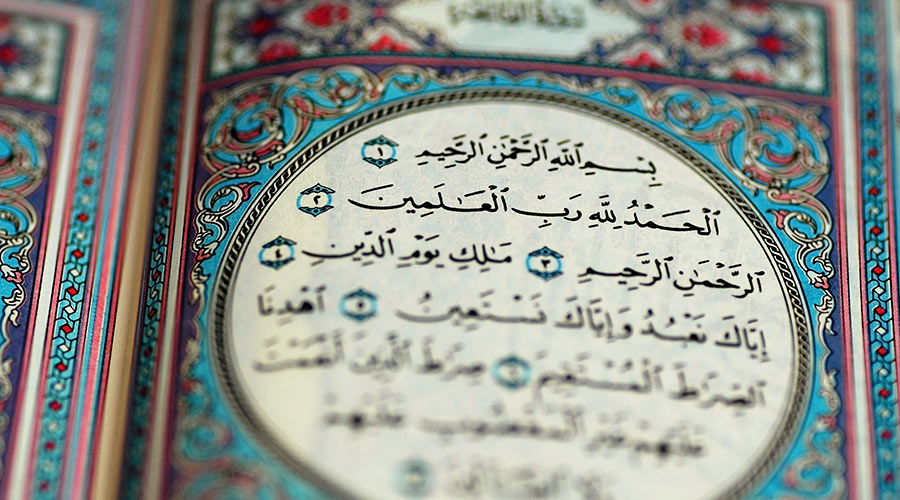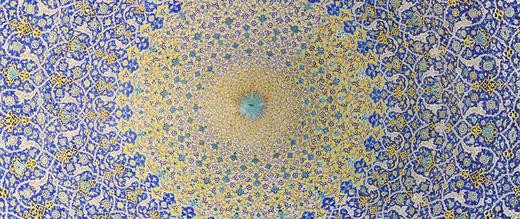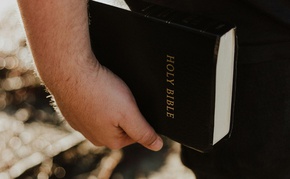The views expressed in our content reflect individual perspectives and do not represent the authoritative views of the Baha'i Faith.
In the previous essay in this series we saw how, in a tablet revealed on the day of his declaration, Baha’u’llah wrote that the Qur’an’s promise of meeting God on the “Last Day” requires the appearance of a new messenger of God.
In the Book of Certitude, Baha’u’llah addressed several more subtle interpretations of the ’meeting with God’ that would avoid inferring a new divine religion, and finds them all lacking.
For instance, if anyone claimed that on the future Day of Judgment all humanity would experience a direct, special revelation of the divine attributes from God, then they mistakenly place humanity on par with the prophets:
Such revelation is confined to His Prophets and chosen Ones, inasmuch as none mightier than they hath come to exist in the world of being. – Book of Certitude, p. 142.
A notable feature of Baha’u’llah’s argument regarding the meeting with God is the way it merges what religious studies call ’prophetology’ (doctrines about prophethood) with ’theology’ proper, the doctrine about God, His essence and attributes.
The Qur’an’s promise of the ’meeting with God’ contains embedded within it the guarantee of future revelation, since there is no knowledge of God apart from God’s attributes, and no knowledge of God’s attributes apart from His messengers:
I and the father are one. – John 10:30.
Lo! those who disbelieve in Allah and His messengers, and seek to make distinction between Allah and His messengers, and say: We believe in some and disbelieve in others, and seek to choose a way in between; Such are disbelievers in truth… – Qur’an 4.150-151.
The essence of belief in Divine unity consisteth in regarding Him Who is the Manifestation of God and Him Who is the invisible, the inaccessible, the unknowable Essence as one and the same. By this is meant that whatever pertaineth to the former, all His acts and doings, whatever He ordaineth or forbiddeth, should be considered, in all their aspects, and under all circumstances, and without any reservation, as identical with the Will of God Himself. This is the loftiest station to which a true believer in the unity of God can ever hope to attain. Blessed is the man that reacheth this station, and is of them that are steadfast in their belief. – Baha’u’llah, Gleanings from the Writings of Baha’u’llah, p. 167.
This imbues the traditional Islamic emphasis on tawhid, the divine unity, with a fresh meaning, and sheds light on other aspects of the Baha’i Faith’s relation to its parent religion. For example, the Baha’i Faith has no one direct equivalent of the Islamic shahādatān or ’two testimonies’: that (1) “There is no god but God” (lā ’ilāha ’ill’ Allāh) and that (2) “Muhammad is the messenger of God” (Muḥammad rasūl Allāh).

The first shahāda, the negation that “There is no god but God,” is symbolically replaced in the Baha’i writings with the affirmation “He is God.” While no standard formula expresses the messengership of Baha’u’llah equivalent to the ’second testimony’ in Islam, the affirmation “He is God” is, itself, understood to refer to Baha’u’llah—because he is the fulfillment of the Qur’anic promise of the ’meeting with God’. Thus the role of the two testimonies in Islam is compressed into one, underscoring the unification the Baha’i teachings call for in all areas of belief and practice.
Unlike the second testimony of Islam, the Baha’i exclamation “He is God” leaves the identity of God’s messenger implicit and unspoken. Because of this, it could not serve as yet another creed to differentiate one part of humanity or the followers of different Faiths from one another:
The religion of Love is apart from all religions: for lovers, the (only) religion and creed is—God. – Rumi, Masnavi 2.1770.
The fact that Baha’u’llah has not left the world with yet another creed or watchword to separate humans into believers and infidels expresses one of the main objectives of the Baha’i revelation:
The utterance of God is a lamp, whose light is these words: Ye are the fruits of one tree, and the leaves of one branch. Deal ye one with another with the utmost love and harmony, with friendliness and fellowship. He Who is the Day Star of Truth beareth Me witness! So powerful is the light of unity that it can illuminate the whole earth. – Gleanings from the Writings of Baha’u’llah, p. 288.
Consort with all religions with amity and concord, that they may inhale from you the sweet fragrance of God. Beware lest amidst men the flame of foolish ignorance overpower you. All things proceed from God and unto Him they return. He is the source of all things and in Him all things are ended. – The Most Holy Book, p. 72.
Next: Our God and Your God is One

















Comments
Sign in or create an account
Continue with Facebookor